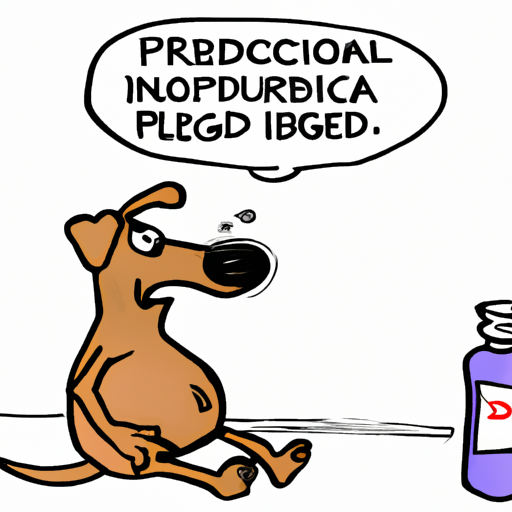If you’re a dog owner, you’re undoubtedly devoted to ensuring your pet’s health and happiness. But what happens when your dog experiences digestive discomfort? One of the medications you may have heard about in this context is Pepcid. This article will provide an in-depth look into what Pepcid does for dogs, including its uses, side effects, and more.
Table of Contents
- What is Pepcid?
- What Does Pepcid Do for Dogs?
- How to Administer Pepcid to Dogs
- Possible Side Effects and Risks
- Frequently Asked Questions
Key Takeaways
– Pepcid is a commonly prescribed medication for dogs suffering from gastrointestinal issues such as ulcers and gastritis.
– Always consult your vet before giving Pepcid to your dog.
– Side effects are rare, but can include loss of appetite, vomiting, and changes in behavior.
What is Pepcid?
Pepcid, known generically as famotidine, is a type of drug known as an H2 antagonist, which reduces the amount of stomach acid produced. It’s commonly used in humans to treat conditions like heartburn and stomach ulcers. Interestingly, it’s also used in veterinary medicine for similar purposes.
This comprehensive guide on Pepcid provides an in-depth look into how this drug works in dogs.
What Does Pepcid Do for Dogs?
When dogs have excess stomach acid, it can lead to uncomfortable conditions such as gastritis (inflammation of the stomach lining) and ulcers. In some cases, excess stomach acid can even lead to severe damage to the esophagus. This is where Pepcid comes in.
Pepcid for dogs works by blocking the H2 receptors in the stomach lining. This reduces the production of stomach acid, helping to alleviate symptoms such as vomiting and diarrhea, and allowing any existing ulcers to heal. It’s worth noting that while Pepcid can help manage these symptoms, it doesn’t address the underlying cause of the excess stomach acid. As a result, it’s essential to speak with your vet about any ongoing health concerns for your pet.
For more information about the use of Pepcid in dogs, check out this article on One Top Dog.
How to Administer Pepcid to Dogs
Before administering Pepcid to your dog, it’s crucial to first consult with your vet. They will provide the correct dosage based on your dog’s weight, overall health, and the severity of their symptoms.
Here are the general steps for giving Pepcid to your dog:
- Obtain the correct dosage from your vet. Overdosing can lead to serious complications, so it’s important to get this right.
- Administer the medication orally, typically once or twice a day.
- Monitor your dog for any side effects. Although rare, side effects can occur. If you notice anything unusual, contact your vet immediately.
For more on how to properly care for your dog’s health, explore this article on One Top Dog.
Possible Side Effects and Risks
While Pepcid is generally safe for dogs, it’s still a medication, and like all medications, it can have side effects. Some dogs may experience loss of appetite, vomiting, dizziness, or changes in behavior. If you notice any of these side effects, it’s important to contact your vet immediately.
It’s also worth noting that Pepcid should not be used in dogs with liver or kidney disease, pregnant dogs, or dogs that are nursing. Always discuss your dog’s full medical history with your vet before starting any new medication.
You might find this information on dog health from One Top Dog useful in understanding potential risks.
Frequently Asked Questions
Q: Can I give my dog Pepcid without consulting a vet?
A: While Pepcid is generally safe for dogs, it’s always best to consult a vet before giving your pet any new medication. Your vet can provide the correct dosage and monitor your dog for any adverse reactions.
Q: How long does it take for Pepcid to work in dogs?
A: Pepcid starts working within an hour of administration. However, it may take a few days of consistent use to see noticeable improvements in your dog’s symptoms.
Q: What should I do if I miss giving my dog a dose of Pepcid?
A: If you miss a dose, give it as soon as you remember. However, if it’s close to the time for the next dose, skip the missed dose and continue with the regular schedule. Never give two doses at once.
In conclusion, Pepcid can be a valuable tool in managing gastrointestinal issues in dogs. However, it’s vital to always consult with your vet before starting any new medication. Remember, your dog’s health and well-being are always the top priority.



